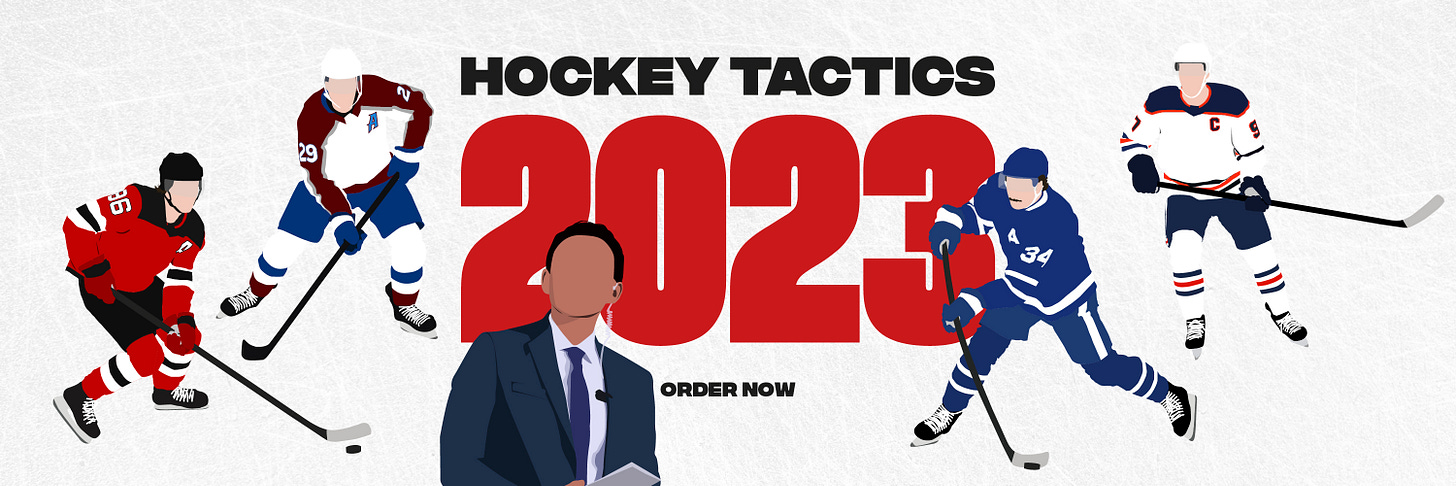Four Ways To Work
Revisited: A different way of understanding why people succeed
Earlier today I had a chat with the son of a friend, a 16-year-old who aspires to work in hockey. Our conversation reminded me of the following newsletter post, originally published in 2021.
Yesterday I talk over the phone with two hockey players.
One of them is 10.
The other plays in a North American professional league.
Yet we talk about precisely the same thing.
Every hockey coach (or teacher, or role model) you and I have ever had instruct us to work hard:
To try the best we can no matter the score
To exert emotional labor and have a good attitude
To practice and compete with maximum intensity
But to me the intensity = success equation doesn’t add up.
Even when I was 10 I felt it was an incomplete explanation for a person’s career and life outcomes.
The Four Ways to Work
Intensity (Working Hard)
We lionize this first way to work. But I think there’s more.
Direction (Working Smart)
“Do you have any friends who are in Boy Scouts?” I ask the precocious 10 year old, whose father emailed me because his son is a fan of my hockey ebooks.
He thoughtfully paused before answering, as he often does.
“Yes.”
“Boy Scouts are taught to navigate using a compass. Do you know what a compass is?”
“Yes.”
“The most important thing when navigating is to go in the right direction, and the compass tells you which way you’re going. If you need to go 10 miles north, it’s better to go 1 mile north than to go 10 miles south.”
“That makes sense,” he says.
Compounding (Working Early)
“I bet you learned how to skate really early in life, like at four or five?” I ask the NHL draft pick.
“Yeah that sounds about right,” he replies.
“When I was five I had no idea there was such a thing as hockey. And I wasn’t a very athletic kid to begin with. Instead of playing outside and socializing with my friends, I read a ton of books.”
My parents worked long hours so I spent a lot of time at my grandparents’ house. My grandfather never played sports with me and he didn’t have any toys at his house. Whenever I’d go over he would leave me alone and read ancient Chinese literature or work on his calligraphy. He was an elementary school teacher so the only pastime I had was to read his elementary school textbooks, which had pictures in them. By age five I was reading at a fifth-grade level. At age six I was writing short fiction.
Maybe I had stronger-than-average aptitudes for reading and writing. But starting earlier than everyone else definitely help me build up an advantage over my peers that compounded over the years.”
Persistence (Working longer)
I played (then coached) organized hockey most of my life, yet precisely zero of my former minor hockey, high school or junior teammates & colleagues work in at the professional level of the game.
I was definitely not the best player nor the hardest worker. A number of the people I’ve encountered in hockey are smarter than me. Most of them started earlier.
But for whatever reason I stick around.
A chance encounter at the 2008 US Open leads to a friendship with a pro athlete. We cross paths against four years later and I spend a week behind the scenes of a pro tennis tournament, reawakening my dormant interest in writing about sports.
In 2013-14 I make the NHL for the first time (as a writer) and discover a direction I want to work toward (not being a writer). The following season I drop down to Canadian university women’s hockey to pursue that direction.
I start working on cutting-edge solutions to new problems early enough.
Three years later I’m back in the NHL, this time as an analyst, scout and coach.
Three years after that I find a new way to sustainably do what I want to do; I hope to stick around in that capacity for a while longer.
Conclusion: A Choose-Your-Own Adventure
“I don’t think you have to be good at all four ways of working,” I tell the 10 year old. “I know I’m definitely not good at all four.
But you’re probably pretty good at one or two of those ways already, and that’s perfectly okay for now.
Focus on those and maybe try the others as you get older.
Then you’ll find that you can become good at anything you set your mind to.”
Play smarter by reading the Hockey Tactics 2023 ebook
“This was my first season head coaching a 16U AA travel team. This is an interesting year, because the players are becoming mature enough to understand not just basic hockey skills and tactics but rather true team strategy and how the game is thought through and played.
“I used the ebook, along with video of the associated teams, to teach my players that ‘next level’ thinking they need to succeed in today’s game. Thanks for this…you’re helping coaches to develop future players (and hopefully coaches too)!” - Dave G.

